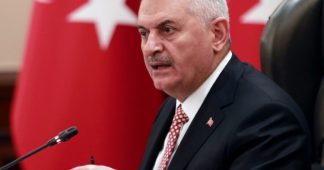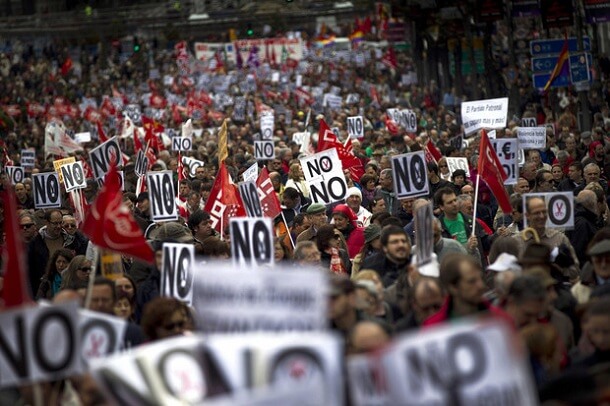Various workers and teachers unions’ around the world have expressed their solidarity with movement in Tunisia.
By Zoe PC
The Dawn News / April 24, 2018
Since December last year, thousands of teachers in Tunisia have been mobilizing against the government policies which threaten the public education system and the rights of the educational workers. On April 13, supported by the Tunisian General Labour Union (UGTT), the General Federation of Secondary Education (FGESEC) decided to stop work at all high schools and colleges of Tunisia, and begin an indefinite strike starting on April 17.
The educational workers movement occurs in the context in which diverse sector of Tunisian society have been denouncing the austerity economics of the current government. They have also been highlighting that since the overthrow of Zine al-Abidine Ben Ali in 2011, the people’s demands for economic justice have still not been met.
The movement began in December 2017 with a strike by thousands of teachers in front of the Ministry of Education, who demanded that the current process of disintegration of public schools be reversed through in-depth reforms and greater human and financial resources. In January 2018 the teachers refused to submit the exam grades to the administration and in February they again held a massive protest. In March, despite holding the largest mobilization yet, the government refused to negotiate with the educational workers’ union. The government’s refusal to engage in dialogue and listen to the workers demands led to the work stoppage and indefinite strike happening.
The FGESEC has specifically called for wage increases for workers and a retirement age of 55 based on 30 years of work. It also demanded an education system reform based on the historic slogan of the trade union: progressive public schools, democratic education, and national culture, and overall halting the privatization of the public sector.
The trade union sees the governments attacks on the public education system and its workers as a slavery to the international financial institutions. They have declared that it is the government of the IMF and Mrs. Lagarde [the director of the IMF] rather than of its people.
Fathi Chamkhi, MP and leader of the Popular Front and the League of the Workers’ Left, points out that Prime Minister Youssef Chahed was promoted to the executive in August 2016 “with the main mission being the implementation of a new four-year IMF program” so the attitude of his government is not a surprise.
Chamkhi analyses that: “The mobilization of the teachers expresses, beyond their own demands, a total refusal of the policy of evasion which continues since 2011. It is a categorical refusal of the slow death of the school and all the public services, the sabotage of public enterprises and the social security system, the continued deterioration of the purchasing power of employees and the working classes … demanded by the IMF”.
“So far, neither the 2011 revolution, nor the democratic elections of 2011 and 2014, nor even the thousands of actions and struggles carried out in recent years by employees, the unemployed and the disinherited, etc., have managed to free Tunisia from the claws of the dictatorship of international financial institutions and neo-colonialism,” said Chamkhi.
Various workers and teachers unions’ around the world have expressed their solidarity with movement in Tunisia. The World Federation of Teachers Union and French educational workers’ trade union Fédération des Syndicats Solidaires, Unitaires, Démocratiques (SUD) Éducation expressed their solidarity with the teachers strike.











